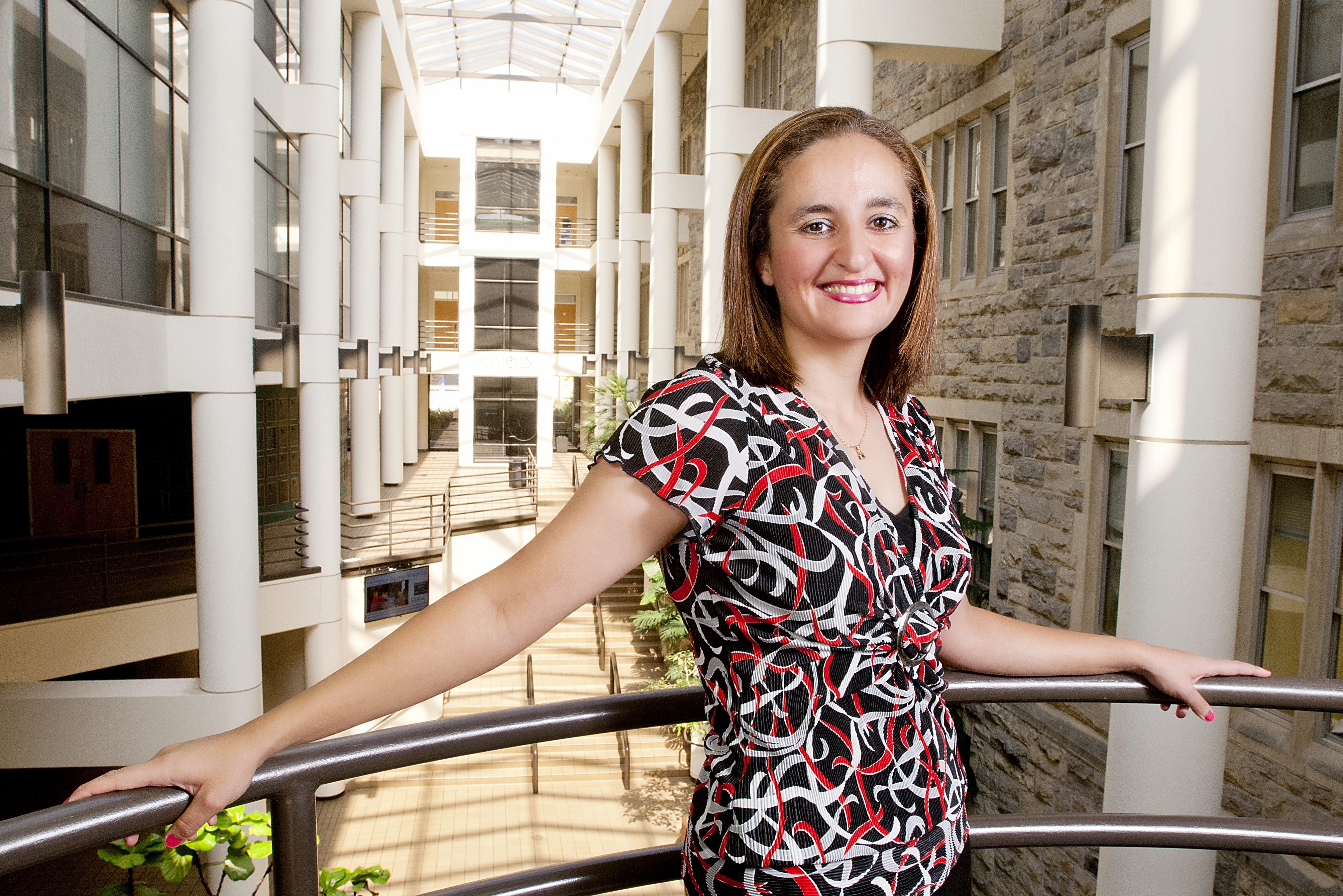Growing demands for healthcare information technology professionals spark online course offering

Lara Khansa, an assistant professor in the Department of Business Information Technology at Virginia Tech, stepped up to the charge to develop and teach the university’s first-ever Healthcare Information Technology graduate course online during the 2012 summer semester.
Three years ago the Pamplin College of Business, recognizing that information technology would be a core element in issues surrounding healthcare decided to develop a two-course module in Healthcare Information Technology for Virginia Tech’s online Master of Information Technology.
“Today given the continuing demand, and obvious importance of the subject matter, the module will be offered again in summer 2013,” said Thomas Sheehan, director of the Master of Information Technology program.
The healthcare course provides students with in-depth analysis and hands-on experience with health informatics, which places an emphasis on electronic health records, design and implementation issues, and regulatory principles and policy implications in healthcare. Virginia Tech is one of the only universities in the country to offer this type of course online, which recently reached capacity within 48 hours of registration opening.
“Lara Khansa was an obvious choice for the difficult task of defining and integrating the disparate facets that comprise the broader field of health information technology (BIT 5564),” says Sheehan.
Citing it as an intensive eight-month journey, Khansa, whose love for the healthcare reform topic and interest to teach online motivated her to volunteer for the experience. Her current research is focused on information security and privacy, disaster operations management and recovery planning, particularly within the realm of the healthcare industry.
Partnering with senior instructional designer/developer Rob Fentress with the Institute for Distance and Distributed Learning, Khansa developed a collection of videos and presentations, online assignments, discussion topics, and tests, each of which ensure conformity to the nationally recognized quality matters prgogram.This framework is designed to certify the quality of online courses and enables faculty to share expertise and experience.
Motivated and encouraged by the success of the course, Khansa is positive she will apply what she has learned from the online course to supplement other classroom-setting courses. “Khansa brought both the engineer’s grasp of the underlying technology and the researcher’s understanding of the broader problem domain to her class,” notes Sheehan.
Dedicated to its motto, Ut Prosim (That I May Serve), Virginia Tech takes a hands-on, engaging approach to education, preparing scholars to be leaders in their fields and communities. As the commonwealth’s most comprehensive university and its leading research institution, Virginia Tech offers 240 undergraduate and graduate degree programs to more than 31,000 students and manages a research portfolio of $513 million. The university fulfills its land-grant mission of transforming knowledge to practice through technological leadership and by fueling economic growth and job creation locally, regionally, and across Virginia.




